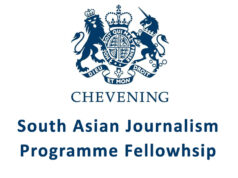Islamabad: Leveraging taxes on agriculture is a core component of Pakistan’s latest deal with the International Monetary Fund (IMF). “If the commitment is not followed, the program’s success will be at risk,” Nathan Porter, Chief of Mission for Pakistan, told Nikkei Asia in an exclusive interview.
On July 12, Pakistan and the IMF on Friday reached a staff-level agreement on a $7 billion extended fund arrangement (EFF) spread over 37 months. This agreement is subject to approval by the IMF’s executive board.
Agriculture accounts for a quarter of Pakistan’s GDP but has remained tax-free. In the latest IMF program, the provincial governments have agreed to tax the sector in the same way as the federal government taxes personal and corporate income.
“These measures will bring in more revenue and place more sectors under the taxation net,” Porter said in the interview.
Read Also: Fake News Busted: Pakistan Borrowed $20 Billion not $53 Billion from IMF to Date
The issue of taxing farms has been contentious in Pakistani politics. Many influential landowners, active in leading political parties, have lobbied to keep agricultural income tax-free. The government’s new commitment to tax agriculture could lead to a political backlash, complicating efforts to fulfill this promise.
However, Porter emphasized that if this commitment is not honored, the success of the Pakistani program will be at risk. “There will be reviews under the program every six months,” he clarified.
The latest program also focuses on making Pakistan’s power sector viable through a timely adjustment of power tariffs, which involves increasing power bills in the short term.
“Viability of the power sector in Pakistan is critical to avoiding load-shedding (power cuts) and circular debt, as well as making the power sector sustainable,” Porter stated. “What’s important is the electricity system is able to cover its costs. If costs come down, including because of the cost of inputs, then tariffs should reflect this.”
The IMF also advised Pakistan not to further expand its power generation capacity.
This raises questions about certain power plants in the pipeline, including the 300-megawatt coal-fired power plant planned for Gwadar Port under the China-Pakistan Economic Corridor (CPEC), the $50 billion Pakistan component of the Belt and Road Initiative.
When asked if the IMF is advising against building any new power projects, including the Gwadar plant, Porter said Pakistan already has ample capacity and pays capacity charges if it is not used. “In the new program, we have argued for the government to avoid further capacity commitments without new transmission infrastructure being added in parallel and the full utilization of existing capacity,” he said.
Additionally, Pakistan’s finance minister is scheduled to visit China this month to request the Chinese leadership to reschedule Pakistan’s power debt of over $15 billion.
Nikkei asked Porter if Pakistan is making this request to China at the IMF’s behest.
“We have discussed the reform agenda for the power sector of Pakistan, which includes finding ways to reduce the costs of [independent power producers], but we have not singled out any particular providers,” he said.
In response to criticism that the IMF’s measures target Pakistan’s salaried class and protect the elite, Porter responded that all IMF programs focus on what is needed to stabilize the economy and create an environment for higher inclusive growth with inflation under control.
“In the new EFF, we have focused on raising revenue from currently under-taxed sectors of the economy. Exporters have also been brought under the standard GST (general sales tax) and corporate tax regimes. So, with this budget and program, the tax system will be fairer for every sector in Pakistan,” he wrote.
In the recently passed budget, the Pakistani government exempted civil and military bureaucrats from tax on the disposal of immovable property. This move received criticism given the government’s focus on raising revenue.
Porter stated that the government has agreed to remove many exemptions in the budget ahead of the new program. “Removing exemptions in the tax system is critical to making tax collection both fairer and more efficient, and we will continue to look to reduce exemptions in the future,” he added.
Pakistan is currently engaged with the IMF in its 24th program. Porter noted that Pakistan has one of the largest numbers of IMF programs, spanning one of the longest periods.
Critics of the IMF argue that Pakistan is likely to remain stuck in IMF programs indefinitely.
In response, Porter said most countries with IMF programs eventually move on from the fund’s support, while others have precautionary arrangements even if they do not need the financing.
He also shared a recipe for the success of IMF programs.
“What past experience has shown is that broad-based political ownership of the programs’ goals and implementation, without backtracking, is critical to success,” Porter concluded.
Share your comments!







